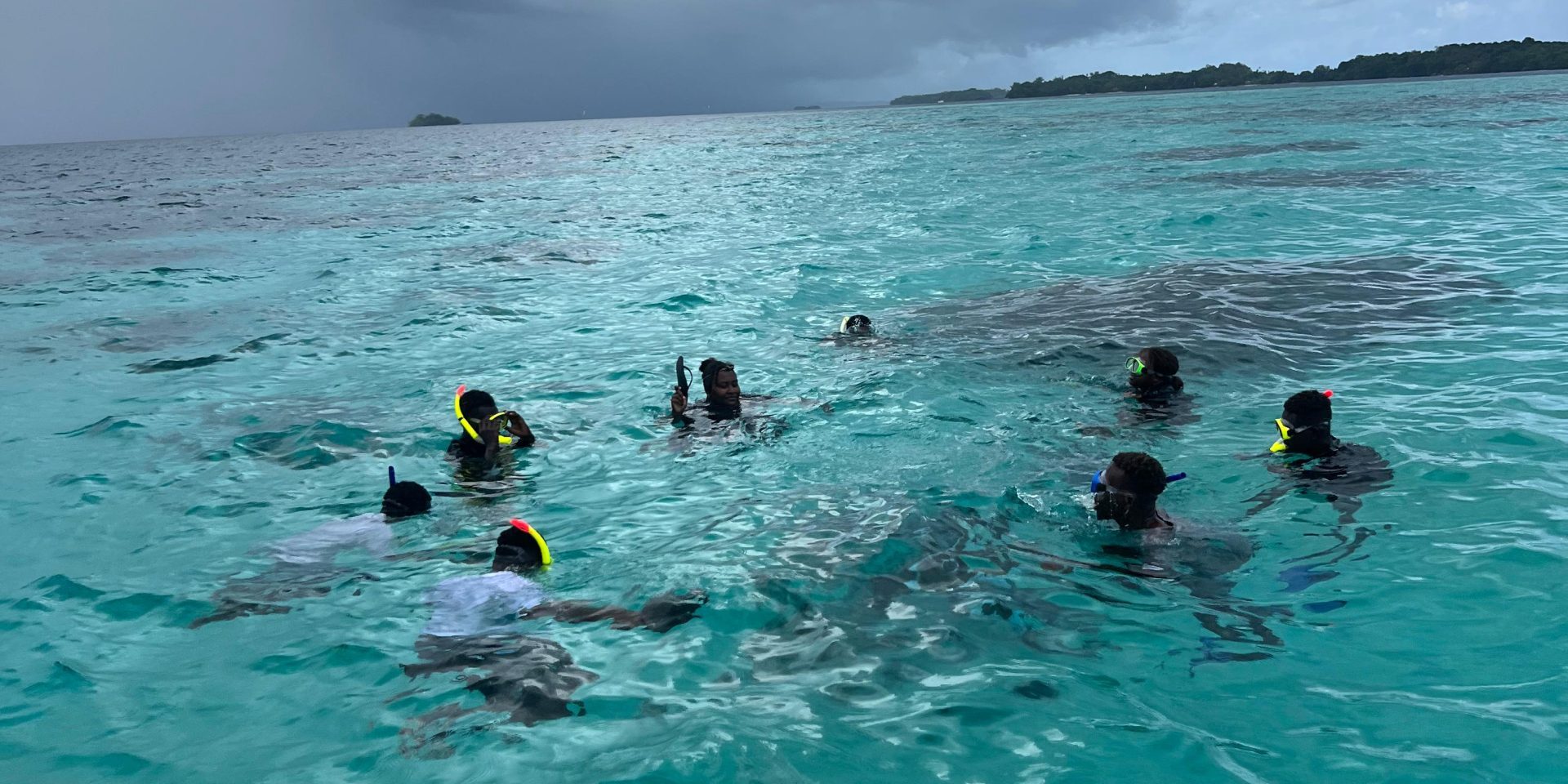Nagotano, Central Province – The Wildlife Conservation Society (WCS), as the lead national executing agency for the Global Environment Fund’s Coral Reef Rescue: Resilient Reefs, Resilient Communities project (GEF CRR) in Solomon Islands, recently hosted a pivotal regional exchange.
This event, a field session for Coral Triangle Initiative on Coral Reefs, Fisheries and Food Security (CTI-CFF) Regional Exchange participants, featured a “community of interest dialogue” at the Nagotano community in Central Province.
The exchange brought together members of the CTI-CFF initiative—a multilateral Partnership of six countries: Indonesia, Malaysia, Papua New Guinea, Timor Leste, Philippines, and Solomon Islands.
The event marked ten years of the Women Leaders Forum (WLF), a peer-learning network established in 2014 dedicated to empowering women in marine and coastal resource management across the Coral Triangle partner countries (CT6).
Operating under the theme: “From Southeast Asia to Melanesia: Celebrating the Resilient Voyage of Our Women Leaders,” the regional exchange served to reflect on a decade of achievements while charting future pathways.
Key highlights included sharing success stories and lessons learned from the past decade, strengthening women’s leadership networks across the Coral Triangle, and enhancing the understanding of Gender Equity and Social Inclusion (GESI) in marine resource management.
The Nagotano field visit showcased a successful women-led marine management initiative. During the community discussions, WLF participants gained insights into local governance, resource management strategies, and the important role women play in marine resource decision-making.
Despite operating in a context traditionally dominated by males, the women of Nagotano have successfully taken on leadership roles in conservation.
Their efforts include developing a Community Fisheries Management Plan, leading coral replanting efforts, engaging in sea cucumber restocking, pursuing alternative livelihoods, and regularly monitoring their coastal marine areas.
“For us women in Nagotano, to manage, conserve, and protect our marine resources is to protect our families. We depend on our marine resources for food security and livelihood,” stated Claire Kent, a woman representative from the Nagotano community.
Ms. Kent added that through such initiatives, women are given the opportunity to show that they can be leaders in conservation efforts in their communities, and that their voices matter in shaping the future of the oceans.
The community-based initiative in Nagotano supported by the World Bank, specifically through the Pacific Regional Ocean-scape Program (PROPER) Project, and the Ministry of Agriculture and Livestock (MAL), which provides technical support for developing alternative livelihood projects, in partnership with the Ministry of Fisheries and Marine Resources (MFMR).
“Women have been at the heart of this process, ensuring that conservation is not just on paper, but lived practice,” commented Ms Letisha Pende, Community Based Resource Management (CBRM) officer from MFMR.
The success of the Nagotano exchange underscores how empowering women and fostering inclusivity effectively strengthens community stewardship of marine resources.
Furthermore, “With the success of the CBRM initiative, it provides a safe and conducive haven for threatened species to live,” said Mr David Aram from the MFMR, who serves as Chair of the Threatened species working group.
The field event was made possible through a collaborative effort involving WCS, the Ministry of Environment, Climate Change, Disaster Management and Meteorology (MECDM), and MFMR. Funding was provided by the Global Environment Fund’s (GEF 7) Coral Reef Rescue: Resilient Reefs, Resilient Communities project.
The GEF CRR project is implemented by the World Wildlife Fund for Nature (WWF-US), with the University of Queensland (UQ) as the Lead Executing Agency and the WCS serving as the National Technical Facilitator in Solomon Islands.
- Ministry of Environment, Conservation









